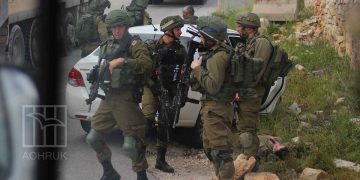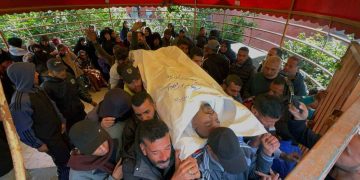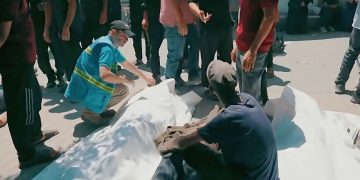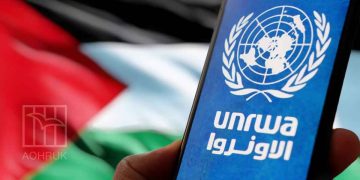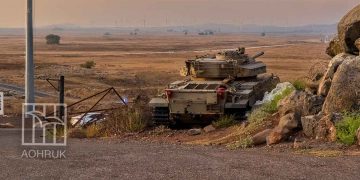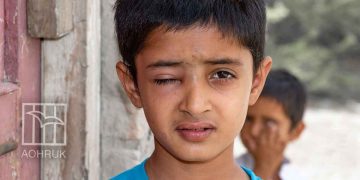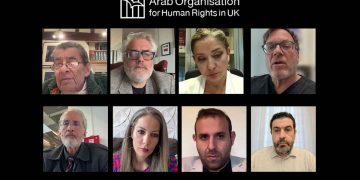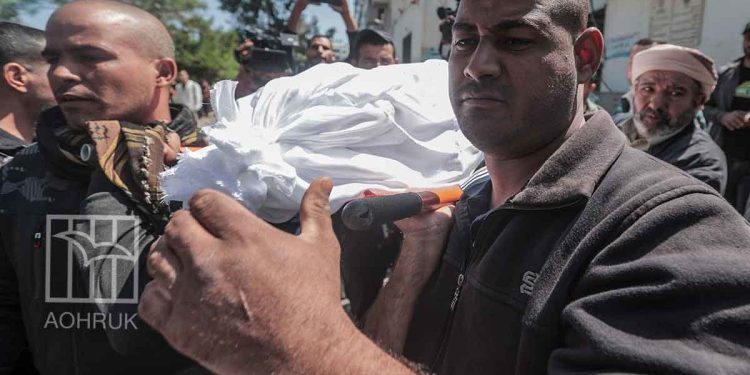At least thirty Palestinians were killed and dozens more injured on Sunday morning after Israeli forces opened fire on civilians gathered near a humanitarian aid distribution point west of Rafah city in southern Gaza. According to local medical sources, the victims had assembled outside a centre operated by the “Gaza Humanity Foundation” when Israeli fire was directed at the crowd.
Eyewitnesses reported that hundreds of residents had gathered in the early hours to receive vital supplies when live fire and artillery shelling struck the site. Aerial surveillance was also reportedly present during the incident, which resulted in a large number of casualties and widespread panic. Medical teams later recovered thirty bodies and transferred dozens of injured individuals to Nasser Medical Complex and the Red Crescent-run field hospital in Khan Younis. Ambulance crews encountered severe difficulty reaching the site due to continued firing and the general insecurity of the area.
Later that same day, additional civilians were killed during a second Israeli strike targeting another distribution centre near central Gaza. Reports from Al-Bureij refugee camp indicated that at least twenty people were injured in further shelling, which also targeted residential areas surrounding the aid site.
The attacks have prompted renewed condemnation from humanitarian and legal observers, who argue that these strikes form part of a consistent pattern of targeting civilians in or near areas designated for aid distribution. The facilities had been publicly marked and were operating under internationally coordinated humanitarian procedures. The “Gaza Humanity Foundation”, which runs multiple aid points across the Strip, confirmed that its operations have been repeatedly disrupted despite the urgent humanitarian need and full prior coordination with relevant authorities.
Sunday’s events come amid ongoing concerns over the use of starvation and deprivation as tools of war. United Nations agencies have warned of catastrophic hunger levels in Gaza, where over 2.4 million residents are trapped under siege conditions that have persisted for more than three months. Israel’s closure of key border crossings has prevented the entry of thousands of tonnes of aid, despite the accumulation of supplies just outside the Strip.
International humanitarian law prohibits the targeting of civilians and the use of starvation as a method of warfare. Legal experts have noted that the repeated attacks on aid distribution sites, combined with the deliberate obstruction of humanitarian access, may amount to war crimes or acts of genocide, particularly where there is evidence of intent to destroy a population in whole or in part.
Since 7 October 2023, the conflict has resulted in more than 178,000 Palestinian casualties, including tens of thousands of women and children, with over 11,000 people still missing. Widespread destruction of homes, health facilities and vital infrastructure has left hundreds of thousands forcibly displaced and deprived of essential services.
The deliberate targeting of civilians during aid collection efforts reflects a broader pattern of violations involving indiscriminate attacks, deprivation, and forced displacement. The failure to protect humanitarian corridors and the intentional targeting of civilians in moments of acute vulnerability raise urgent questions about accountability and the effective enforcement of international law.

